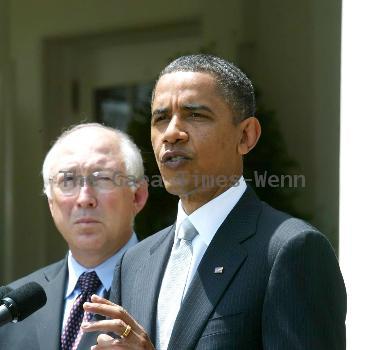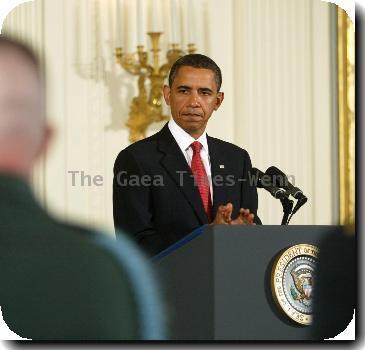AP sources: James R. Clapper leading candidate for top intelligence post
By Kimberly Dozier, APFriday, May 21, 2010
AP sources: Clapper leading choice for intel job
WASHINGTON — The White House’s leading candidate to replace Dennis Blair as national intelligence director is James R. Clapper, the Pentagon’s top intelligence official, current and former U.S. officials said Friday.
Two current officials said another candidate is Mike Vickers, the Pentagon’s assistant secretary for special operations. But a Defense Department official said Vickers has not been contacted for an interview. All the officials spoke on condition of anonymity because a replacement for Blair has not been announced.
Clapper currently is defense undersecretary for intelligence.
President Barack Obama was already talking to candidates for national intelligence director’s job before Blair resigned Thursday under pressure from the White House.
Obama spokesman Robert Gibbs said the president had spoken with a number of well-qualified candidates so he could have people ready in case he decided to make a change with the intelligence post. Gibbs wouldn’t comment on what candidates the president has spoken with, but said an announcement will come soon.
Blair resigned after a tumultuous 16-month tenure that critics say underscored the disorganization inside the Obama administration’s intelligence apparatus. A spate of high-profile attempted terror attacks that revealed new national security lapses has rocked the White House over the past six months.
Gibbs was publicly supportive of Blair Friday, commending him for increasing the government’s focus on counterterrorism and radicalization, particularly in Afghanistan and Southeast Asia. Still, he said the president believed it was time to make a change.
“There is probably no harder job in Washington, besides being president, than being director of national intelligence,” he said. “The president simply believed that it was time to transition to a different director.”
Blair is the third person to hold the director of national intelligence job, which is to oversee the nation’s 16 intelligence agencies. The post was created in response to the failure to prevent the Sept. 11, 2001 terrorist attacks.
But Blair’s tenure highlighted the flaws that still exist in coordinating intelligence. Following an attempted bombing aboard a plane on Christmas Day, a Senate Intelligence Committee found that the National Counterterrorism Center could have prevented the incident. As director of national intelligence, Blair oversaw the center.
Gibbs said the Intelligence Advisory Board, which advises the president on the effectiveness of the intelligence community, has made recommendations for possible changes to the structure of the director of national intelligence post.
Gibbs said Blair’s resignation will be effective next Friday. Deputy National Intelligence Director David Gompert will become acting director until a permanent replacement is named.
As the Pentagon’s new intelligence chief in 2007, Clapper recommended an end to the anti-terror database TALON that had been criticized for improperly storing information on peace activists and others whose actions posed no threat. Defense Secretary Robert Gates approved Clapper’s recommendation, the Pentagon said at the time.
From 2001 to 2006, Clapper was the director of the National Geospatial-Intelligence Agency, the agency that analyzes imagery taken from the skies to provide information on insurgencies, nuclear sites, terror camps and troop movements.
After the U.S. began the Iraq war, Clapper suggested to reporters in 2003 that Iraqi officials, perhaps working without the knowledge of Saddam Hussein, moved evidence of Iraq’s weapons of mass destruction programs outside the country before the war started.
Before the war, Clapper’s outfit was one of several intelligence agencies that endorsed conclusions that Iraq was working on chemical, biological and nuclear weapons. His agency analyzed satellite photos.
“We certainly feel there were indications of WMD activity,” Clapper told reporters in October 2003.
Also on Clapper’s watch, the agency expanded its mission on some domestic matters. He said in 2006 the work the agency did after hurricanes Rita and Katrina was the best he had seen an intelligence agency do in his 42 years in the spy business.
Before working at the geospatial-intelligence agency, he was an executive at defense contracting firms such as Vredenburg; Booz Allen Hamilton; and SRA International.
He retired from the military in 1995 as a lieutenant general from the Air Force. His last military assignment was as director of the Defense Intelligence Agency.
Associated Press writers Anne Gearan and Christine Simmons contributed to this report.
Tags: Barack Obama, District Of Columbia, Iraq, Middle East, Military Intelligence, National Security, North America, Terrorism, United States, Washington




